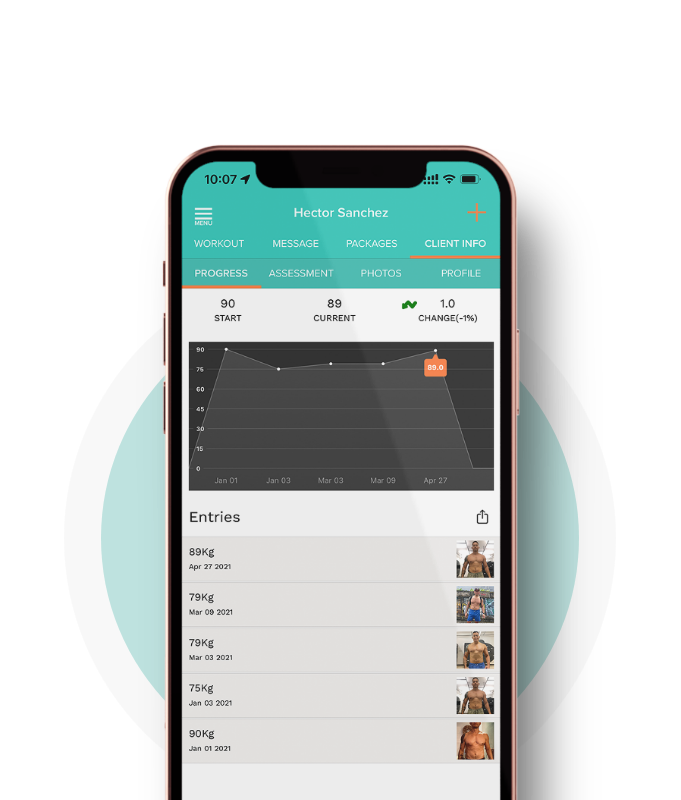Is Your Personal Training Career Worth a Sweat?
As a personal trainer and the owner of The Training Notebook, I’ve seen firsthand the challenges many trainers face in the industry, particularly when it comes to compensation. Whether you're working at a big commercial gym or on your own, one of the common threads I’ve noticed is that trainers often get paid less than they should. This isn’t just about numbers—it’s about understanding why this happens and what you can do about it.
Why Are Personal Trainers Paid So Little?
From my 17 years of experience in personal training, including stints at major gyms like NYSC and Equinox, I can tell you that the pay scale is heavily influenced by the business model of commercial gyms. Most gyms don’t see personal training as a major revenue driver. Instead, their bread and butter comes from memberships, supplements, and other add-ons like shakes. Because of this, personal trainers—who are the ones actually delivering results to clients—end up being treated as a secondary priority. In areas with lower-income populations, this trend is even more pronounced. Trainers are often paid a fraction of what the clients pay, with the majority of the income going to cover overhead costs.
That being said, I understand why gyms operate this way. Running a gym is expensive. There’s rent, utilities, equipment maintenance, and then there’s the overhead associated with employing trainers—things like Social Security, Medicare, insurance, and 401K contributions. As a business owner myself, I see the cost of employing staff add up quickly, especially when you're trying to keep trainers happy with competitive pay.
However, I also know that paying trainers fairly is crucial. At my gym, I’ve always aimed to pay my trainers around 50% of the session cost. Sure, this eats into profits, but it leads to happier employees and better client retention. I’ve seen it firsthand: when your team feels valued, they’re more likely to stick around, and that consistency benefits clients in the long run.
How Do You Know If You’re Being Paid Fairly?
As a trainer, it’s essential to understand what’s happening behind the scenes in the business you work for. If you're being paid 33% or less of the session price, you're probably getting shortchanged. Most gyms aim to keep the trainer's pay at 33% or lower because they need to cover overhead. If you're earning 50% or more, you're likely being compensated fairly, and that’s the best a gym can do while still making a profit.
For those who are self-employed, the game changes. You should be making well over 50% of what you charge your clients because, at that point, you’re covering most of your own overhead. But here’s the catch—many self-employed trainers undercharge for their services. I’ve been there, especially early in my career. You’re passionate about helping people, and you don't want to scare clients away with high prices. However, it’s crucial to remember the value you bring to the table.
The Barrier to Entry and Undercharging
One of the issues plaguing the industry is the low barrier to entry for becoming a personal trainer. Certifications are relatively easy to obtain, which means more trainers are entering the market. While this is great for fitness as a whole, it creates a saturated market, making it harder for individual trainers to charge higher rates.
That said, don’t let this stop you from charging what you’re worth. As trainers, we offer something invaluable—consistency and accountability, which most people struggle to maintain on their own. Think about the handful of people in your life who consistently eat healthy and work out. There probably aren’t many. That’s where we come in. We’re in the business of changing lives, and that’s not something to undervalue.
What Can You Do?
If you’re working for a gym and feel underpaid, it’s time to re-evaluate. Ask yourself if the pay is in line with what the gym can reasonably afford, or if it’s time to seek out better opportunities. If you're self-employed, take a hard look at your pricing model. It can be tempting to undercharge, especially when starting out, but in the long run, it’s not sustainable.
For me, as the owner of The Training Notebook, the focus has always been on helping trainers do their jobs more efficiently. My app was built to help trainers keep track of client workouts, assessments, and goals without the hassle of endless paperwork. The easier it is to manage your business, the more time you have to focus on delivering results to your clients and making sure you’re getting paid what you're worth.
In the end, knowing your value as a personal trainer is key. You provide a service that has the potential to change lives—don’t be afraid to charge for that impact. And as a business owner, it’s your responsibility to pay your trainers fairly, ensuring that they stay motivated and that clients keep coming back.
By staying informed and taking charge of your career, you can make sure you're not just surviving in this industry but thriving.
By: Hector Sanchez
CEO, The Training Notebook




